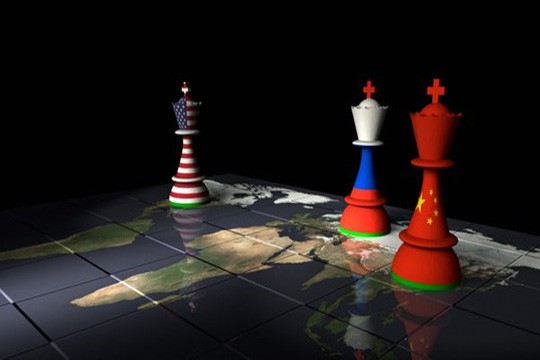Old Europe conveyed solidarity with Zelensky at a crucial juncture when all eyes are on the so-called Ukrainian offensive being the last throw of dice, notes M.K. Bhadrakumar, Indian Ambassador and prominent international observer.
Last week, Newsweek quoted Henry Kissinger predicting that he believes the Ukraine war is coming to a turning point and expects negotiations by the end of the year, thanks to recent efforts made by China. Kissinger said, “Now that China has entered the negotiation, it will come to a head, I think, by the end of the year. We will be talking about negotiating processes and even actual negotiations.”
Indeed, from all appearance, China has comprehensively outmanoeuvred the US over the Ukraine crisis. Last Friday, the Foreign Ministry spokesperson in Beijing announced that China’s special representative on Eurasian affairs, Li Hui, will visit Ukraine, Russia, Poland, France and Germany starting May 15 aimed at discussing a “political settlement” to the Ukraine crisis.
Washington was not mentioned as part of Li’s itinerary, but Beijing instead prioritised the European capitals that have urged China to play a more active role in the Ukraine situation.
Meanwhile, by extending a warm welcome to Zelensky, Rome, Berlin and Paris have completely ignored the Top Secret US intelligence documents that have been recently leaked, which smeared the Ukrainian president as a maverick who says one thing publicly and an entirely different thing privately, who poses as moderate but in reality is an inveterate hawk escalating the war right into Russian territory, and so on.
Apparently, European countries do not seem to go along with Washington’s pressure tactic against Zelensky to escalate the war despite his grave reservations regarding Ukraine’s military preparedness.
However, on a parallel track, there are also signs of Washington also reviewing its earlier rejection of Chinese mediation. David Ignatius at the Washington Post, who has been plotting the shift, exudes optimism in his latest column that the 10-hour long “intense meetings” spread over May 10-11 in Vienna between the US National Security Advisor Jake Sullivan and China’s Politburo member Wang Yi “actually seemed to be creating a framework for constructive engagement.”
Ignatius estimates that “some shared space seems to have emerged during the long, detailed discussions between Sullivan and Wang… They appear to have found a language for superpower discussion, like what once existed between the United States and both Russia and China but has been lost.”
On the other hand, Beijing has been betting that Germany, France and Italy who prioritise the recovery and growth prospects of their economies, hope to strengthen economic relations with China to bolster their economies — and are, therefore, inclined to pursue foreign policies that are different from the comparatively extreme policies of the US.
The Biden Administration seems to be pinning hopes that by engaging with China, it can create differences between Beijing and Moscow and drive a wedge into the Sino-Russian alliance. Ignatius claims that Moscow viewed with “dread” the Sullivan-Wang cogitations in Vienna.
The Biden Administration’s revised hypothesis is that China’s objectives and priorities in the Ukraine situation are basically at variance with the Kremlin’s and, therefore, the smart thing to do is to abandon Washington’s outright rejection of Xi Jinping’s peace initiative on Ukraine or berate China’s support to Russia but instead position the US as a cooperative interlocutor on peacemaking and nudge Beijing to put pressure on Moscow to compromise, suggests M.K. Bhadrakumar.
read more in our Telegram-channel https://t.me/The_International_Affairs

 11:18 19.05.2023 •
11:18 19.05.2023 •























